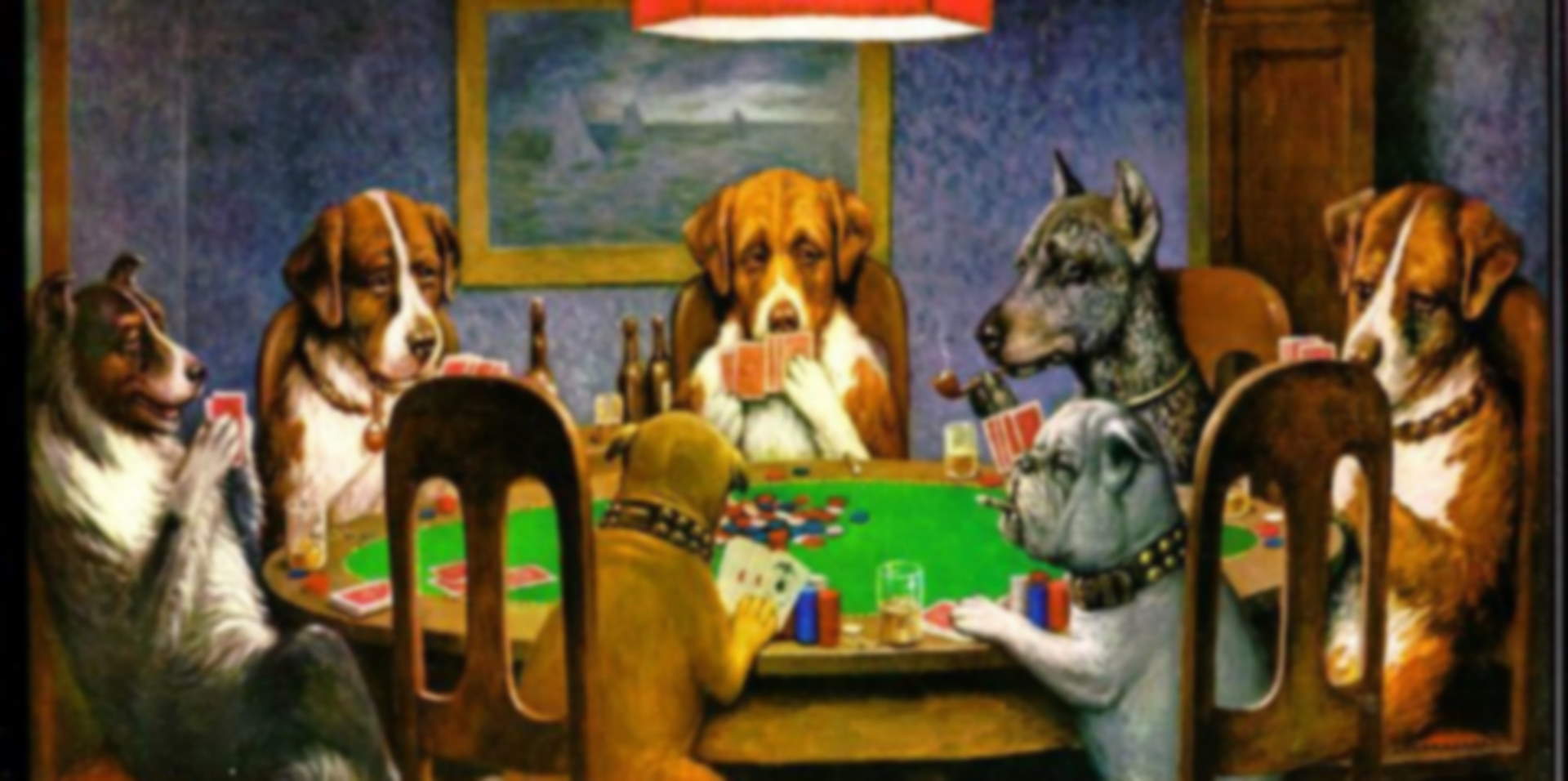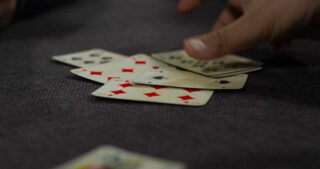

One of poker’s classic quips came from “Amarillo Slim” Preston back during the 1970s. Slim was asked what made the World Series of Poker so special. He answered, “It’s where a poker player can turn a toothpick into a lumberyard.”
The latest lumberjack is Ian Johns, a 21-year-old professional poker player from Seattle, Washington. A few years ago, Johns started playing poker for fun. He deposited $50 into an online poker account and began playing in low-stakes games. Within a few days, his bankroll was depleted and down to just $6. Johns told his then-girlfriend (now wife, Mandy) he would quit playing poker if he lost his last six bucks.
Johns studied the game and slowly started to improve. Within a few weeks, his bankroll has swelled to a few hundred, then a few thousand dollars. By the time he was 21-years-old – and eligible to enter the 2006 World Series of Poker – John’s bankroll had blossomed into half a million dollars.
Mandy Twiggs-Johns, the wife of the latest WSOP champion admits she was not happy at first about her husband’s line of work. “Then, he started winning, and we took the cash and bought a new house,” she said. “I now see that poker is a game of skill and Ian really enjoys playing, so I have accepted what he does.”
The Johns are now in a quandary. Since so much of the family income depends on his online poker activities, they were shocked to learn about a new Washington State law, which makes it a felony to play poker online. “It’s ridiculous,” Johns said when asked about the new state law which prohibits his livelihood. “I have not played online poker since June 7th (when the new law went into effect). We will probably be forced to move (out of Washington State) because of the law.”
This was the first year that Johns played in the World Series of Poker, presented by Milwaukee’s Best Light. Self-confident in his poker skills, Johns hoped to come to Las Vegas for the first time, play in a few events, and perhaps make a few extra dollars. Little did he know that he would win poker’s most coveted prize – a WSOP gold bracelet.
The 23rd tournament on the WSOP calendar was the $3,000 buy-in Limit Hold’em competition. A total of 341 entries produced a total prize pool of nearly a million dollars. It took two full days to eliminate most of the sizable field. On Day Three, nine finalists returned to the Rio Las Vegas to compete for the championship. The final table was a testament to the recent youth movement in poker. Only two players were aged over 30. This was only the second open event in 2006 not to include at least one former gold bracelet winner.
| Name | Chip Count | Seat |
| Tad Jurgens | 60,500 | 1 |
| Mark Newhouse | 106,000 | 2 |
| Fi Tran | 31,000 | 3 |
| Ben Robinson | 103,000 | 4 |
| Ian Johns | 207,000 | 5 |
| Brendan Taylor | 155,000 | 6 |
| Javier Torresola | 132,000 | 7 |
| Jerrod Ankenman | 161,000 | 8 |
| Theo Tran | 74,000 | 9 |
Fi Tran was the first player to exit. The medical salesman from southern California arrived low on chips from the start. He went out in ninth place. Tran collected $18,823.
Ben Robinson, a.k.a. “Kid Rock” was the senior citizen at this final table, at the advanced age of 49. Robinson, who plays guitar in a Florida rock band called “Top Priority” was cut from the group of eight when his ace-jack was terribly out of tune against ace-queen. Robinson’s royalties for this tournament amounted to $28,235.
Brendan Taylor was the next player out. The Henderson, Nevada poker player was making his first-ever WSOP final table appearance. Taylor’s exit hand was dealt when he flopped top pair with kings but ended up losing to a straight. Taylor locked up seventh place, which paid $37,646.
Tad Jurgens ran into every poker player’s worst nightmare when he was dealt pocket kings, against his opponent’s pocket aces. All the money went in by the turn. The aces held up and Jurgens was softly-handed sixth-place prize money, good for $47,058.Mark Newhouse went out a short time later. The 22-year-old poker player and student was eliminated in fifth place. Newhouse added $56,470 to his poker bankroll.
Theo Tran is a graduate of the University of Pittsburgh. Like many of his peers, Tran found he could make extra money playing poker. On his final hand of the night, Tran’s ace-ten lost to Jerrod Ankenman’s ace-king. Fourth place paid $65,881.
Down to three just players, Javier Torresola was getting low on chips and moved all-in. He lost his remaining chips on his final hand of the night. The M.I.T. graduate who works as an engineer received $75,293 for third place.
Ian Johns enjoyed a sizable chip lead over Jerrod Ankenman during most of their heads-up play. Ankenman tried his best to make things interesting. But he never held the necessary cards or caught a big break that might lead to a comeback. The gold bracelet was clearly on Ankenman’s mind throughout play at the final table. As the co-author of the forthcoming book “The Mathematics of Poker,” Ankenman had been forced to watch from the sidelines as his talented co-author Bill Chen won two gold bracelets at this year’s WSOP. Clearly a win for Ankenman would have boosted book sales and been a great story. Note: The Chen-Ankenman book will likely be successful anyway, but another WSOP gold bracelet couldn’t hurt the promotion.
Ankenman’s final breath came about seven hours into play. The last hand of the tournament was won by Johns, who made two-pair holding ace-three. Ankenman’s final hand was not shown. Jerrod Ankenman, a Pepperdine University graduate now living in Connecticut who is now a professional poker player, received $150,586 as the runner up.
Ian Johns lifted his wife into the air as he celebrated winning his first-ever WSOP gold bracelet. Already outrageously successful from playing poker online, John’s prize money in this tournament amounted to $291,755.
“This is a dream come true for me,” Johns said immediately following his victory. “It really has not quite sunk in yet. All I know is – I hope to be sitting up here again soon. I expect to play many more tournaments over the next year”
Which now begs the question Amarillo Slim would have asked. It may have all started with a toothpick. But can a poker player turn a lumberyard into a forest?
Dieser Artikel erschien auf PokerOlymp am 18.04.2007.


